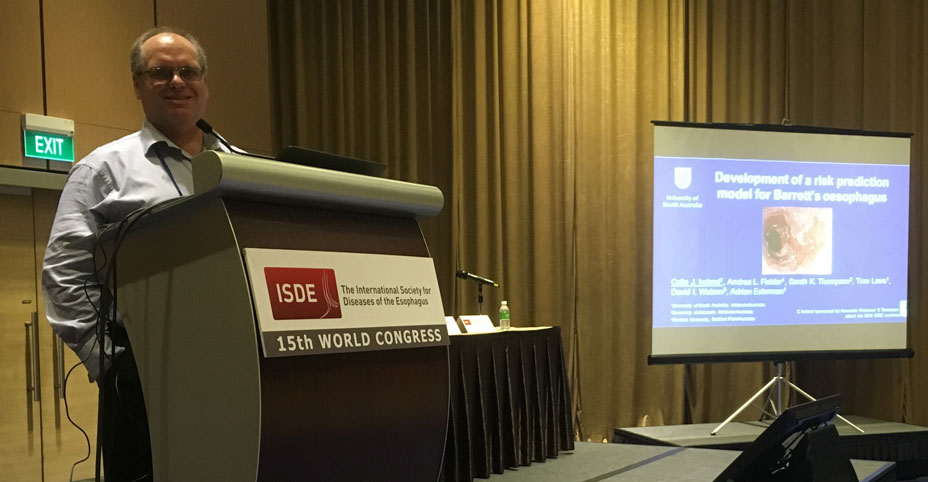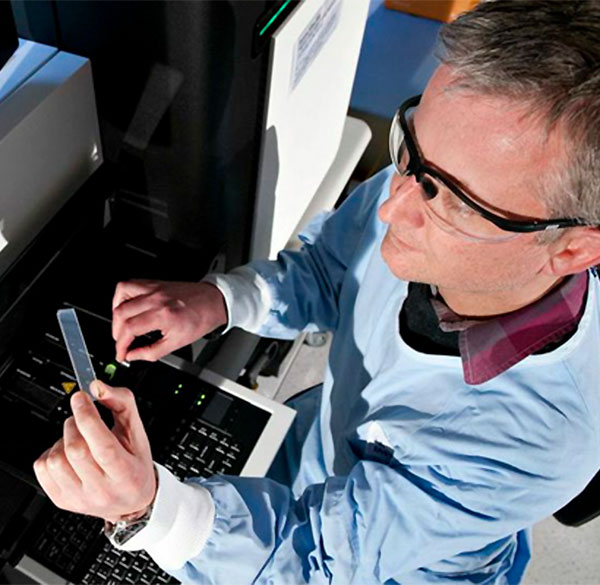
Barrett’s Oesophagus is a common cause of a rare, but deadly, oesophageal cancer and is often undetected in patients. Researchers at the University of South Australia, including PhD candidate and UniSA alumnus Colin Ireland, are working to find an effective early detection tool and potentially save the lives of those who would be affected.
Rarely diagnosed in Australia, Barrett’s Oesophagus (Barrett’s) is estimated to affect between 1.2% - 1.6% of the population, and involves changes to the cells lining the oesophagus in response to repeated episodes of gastric reflux and heartburn.
Currently endoscopy is the only screening tool for Barrett’s, which is an expensive and invasive procedure. The longer the damaged cells are left untreated, the higher the chance they may turn malignant and become cancerous.
Colin has focused his PhD thesis on developing a clinical risk prediction tool that will better identify patients at risk of Barrett’s.
“Reflux and heartburn could have many causes and you can’t just send everybody off for an endoscopy. So there’s potentially a lot of people out in the community who don’t know they have it,” Colin says.
“GPs therefore need some method of screening to work out which patients with gastric reflux should be referred for endoscopy because they are at risk of Barrett’s. This could potentially save lives through early detection of adenocarcinoma.”
The most common type of oesophageal cancer, adenocarcinoma, is difficult to detect in its early stages and can often be fatal. Though classed as a rare cancer in Australia, the number of new cases continue to rise and the five year survival rate is only about 15% if found at the late stages.
“Because of the poor survival rates, if we can actually identify Barrett’s and treat it earlier, the outcomes of the cancer will get better.”
Colin’s approach to developing an early detection tool of Barrett’s is to compare patient features between people with the condition and those without. Colin and his team (a collaboration of researchers) have finished analysing results to establish the variables predictive of people with Barrett’s and devise a detection tool.
There have been limited studies of the condition’s prevalence in Australia.
“Previous studies attempting to develop a screening questionnaire to assist GPs have not been sufficiently accurate. We are confident that our study appears to be more accurate.”
Colin is in the process of checking his results against a different population to ensure the tool meets the required level of accuracy. The results will hopefully lead to clinical trials in a real life situation.
Colin and his team believe this new screening tool is a significant improvement on existing methods and has the potential to save many lives.
“I’m feeling quite positive that we’re going to get some good results out of it.”
Your support can help Colin’s work to improve the screening of Barrett’s and prevent and improve outcomes of oesophageal cancer.

When you give today, 100% of your donation will go directly to the researchers - with no admin fees or hidden costs.
The University of South Australia (UniSA) is committed to tackling one of our most challenging diseases – cancer – by establishing the largest cohort of cancer researchers ever assembled in South Australia. Every day our experts are getting one-step closer to saving more lives as well as improving the quality of life for cancer survivors. But they need your help.
